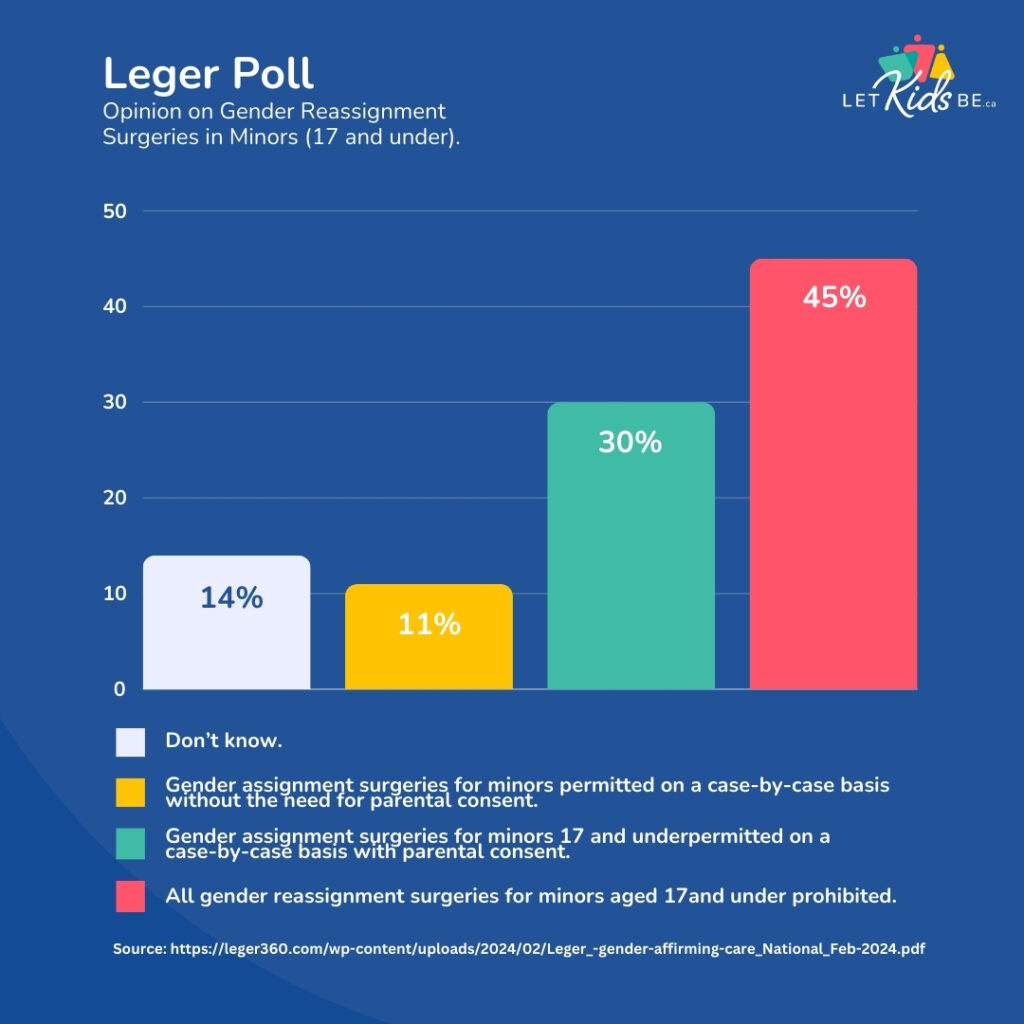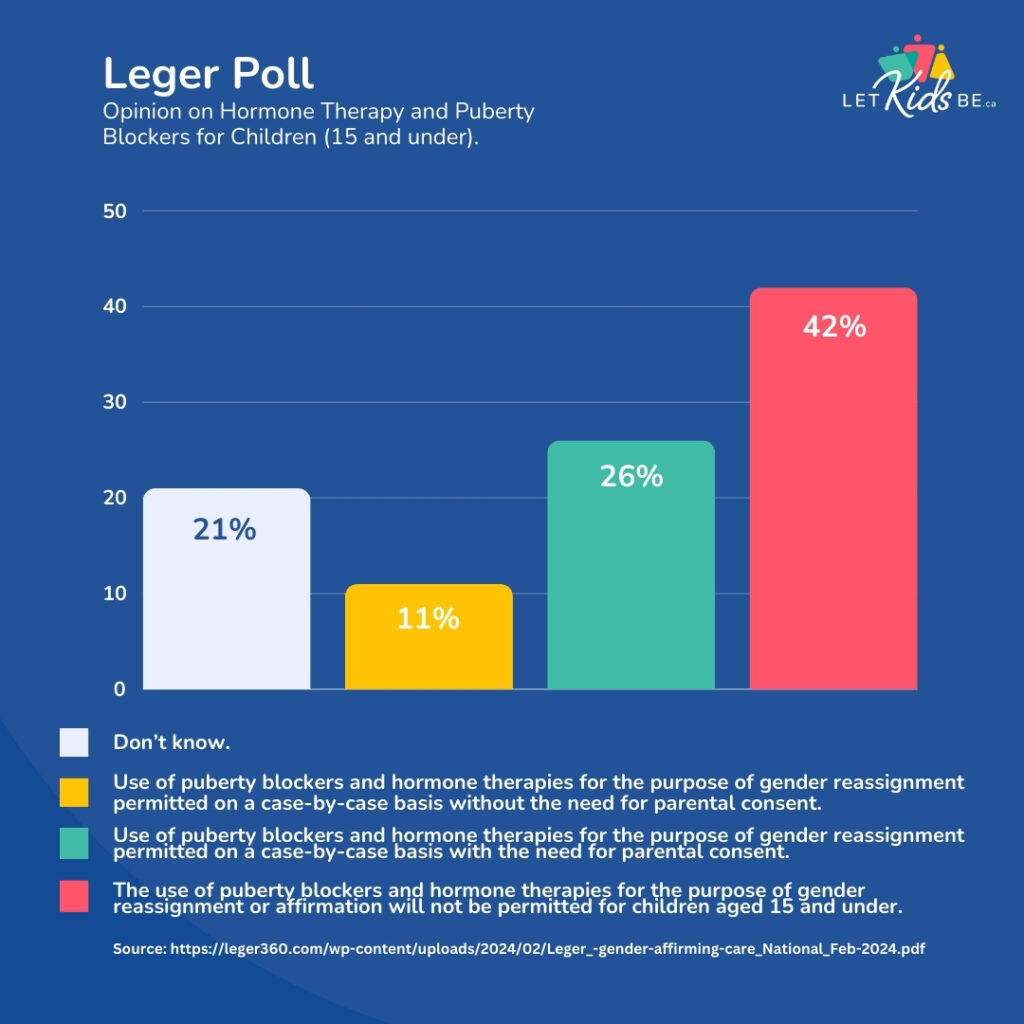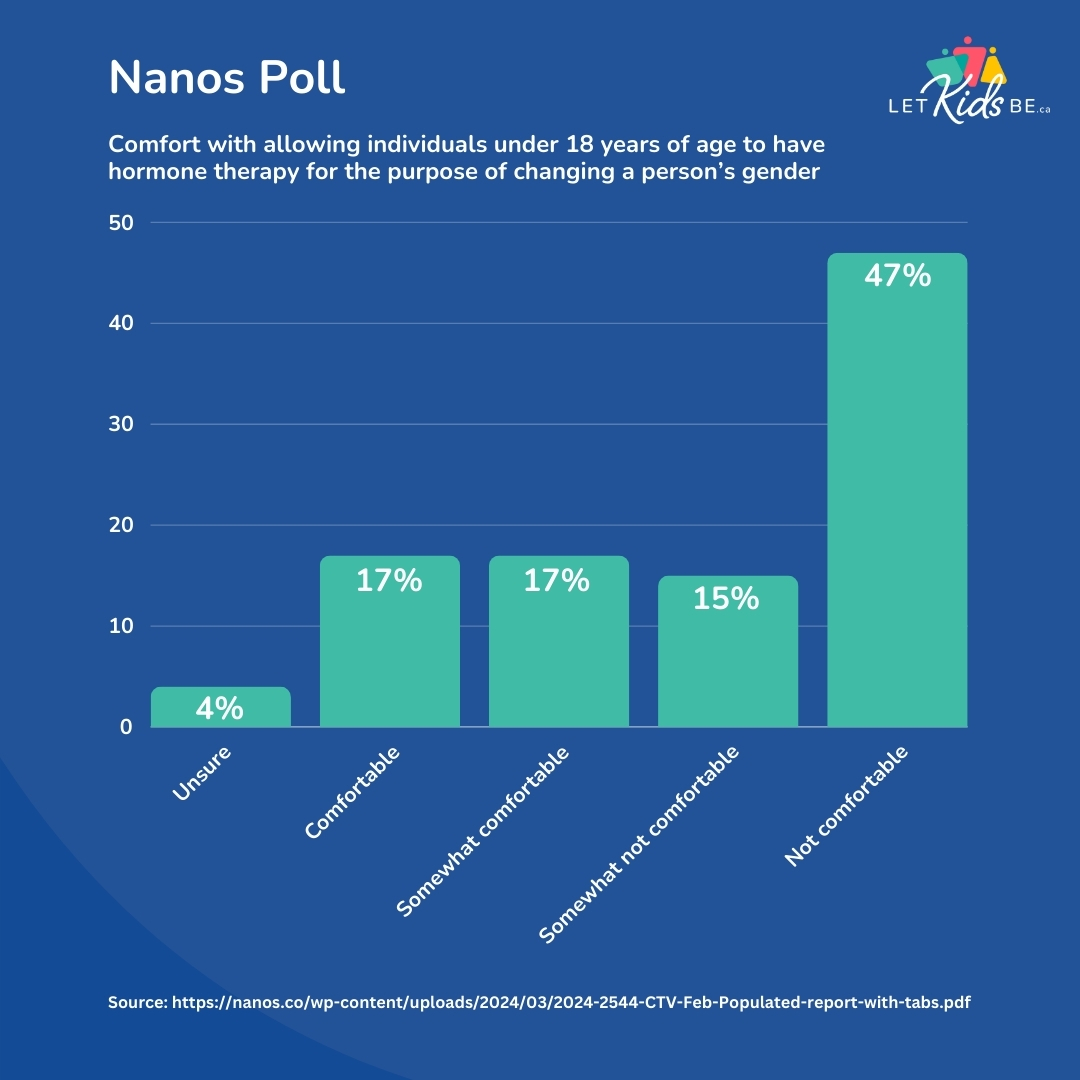Within the last month, two reputable polling firms – Leger and Nanos – have asked Canadians their opinions on various transgender policies. And their position is clear.
According to the Leger poll, 45% of Canadians think that all gender reassignment surgeries for minors aged 17 and under should be prohibited, 30% think that such surgeries should be legal for minors on a case-by-case basis with parental consent, and only 11% say that such surgeries should be legal without parental consent.

A similar number of Canadians – 42% – would also ban the use of puberty blockers and cross-sex hormones for minors aged 15 and under, with 26% opining that such that such interventions be legal on a case-by-case basis with parental consent and only 11% thinking that they can be prescribed without the need for parental consent. Those figures drop to 35% in favour of banning hormonal interventions, 24% in favour of allowing them with parental consent, and 23% allowing them without parental consent for youth aged 16-17.

Nanos found similar numbers. Forty-seven percent of Canadians are not comfortable with allowing minors aged 17 and under to receive puberty blockers or cross-sex hormones. An additional 15% are somewhat uncomfortable with this intervention. Only 17% are somewhat comfortable and another 17% are fully comfortable with puberty blockers and cross-sex hormones for minors.

Three things stand out from these polls.
First, a plurality of Canadians is clearly uncomfortable with medical transitioning for minors and want them banned. Almost half of Canadians (45% in the Leger poll and 47% in the Nanos poll) espouse this position. Canadians who value the bodily integrity of children outnumber the medical transitioning proponents by three or four to one.
Second, age matters. While neither poll asked Canadians view on medical transitioning for adults, Canadians seem to have various opinions on mature minors receiving puberty blockers and cross-sex hormones. Leger found that 42% of Canadians support banning these hormonal interventions for minors aged 15 and below, but that number drops to 35% when those interventions are offered for youth aged 16-17.
Third, parental consent matters. The Nanos poll reveals that 34% of Canadians are somewhat comfortable or somewhat uncomfortable with medical transitioning for minors, but their polling doesn’t get at the reason why Canadians are uncomfortable with idea. The Leger poll provides some context, showing that parental consent is a big deal in the minds of most Canadians, with approximately a third of Canadians viewing the issue through the lens of parental rights.
Time to turn public opinion into public action and public policy.
These polls provide further support for politicians to heed the call to ban medical transitioning for minors. Ultimately, it isn’t the voice of the majority that should dictate public policy. Evidence and facts should. We already know that kids can’t consent to these procedures, that these interventions have a long list of negative side effects, and they fundamentally don’t change a person’s sex. So, the evidence and philosophy is already there.
Now public opinion is there too.
Time to turn public opinion into public action and public policy. Here’s two things you can do:
1. Send an email using ARPA Canada’s EasyMail tool asking your MPP or MLA to stop the medical transition of minors.
2. If you’re in British Columbia or Ontario, print off some petition sheets, get them signed and send off to the address at the bottom of the sheet.
